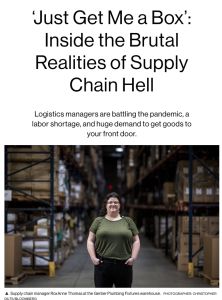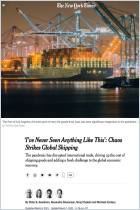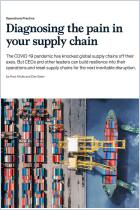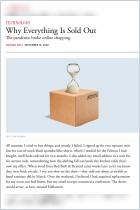
Article
“Just Get Me a Box”: Inside the Brutal Realities of Supply Chain Hell
Logistics managers are battling the pandemic, a labor shortage, and huge demand to get goods to your front door.
Bloomberg Businessweek ,
2021
Recommendation
Reports about supply shortages caused by the COVID-19 pandemic no longer dominate the headlines, but long delivery delays and soaring shipping costs continue to burden US companies. Writing for Bloomberg Businessweek, Brendan Murray explains the situation through the eyes of an Illinois plumbing supply company logistics manager, RoxAnne Thomas, who’s had to become inventive to keep supplies coming. Murray’s eye-opening piece offers the big picture as well as a glimpse of the human efforts behind complex transactions that consumers often experience as nothing more than a mouse click.
Summary
About the Author
Brendan Murray is a reporter and editor at Bloomberg Businessweek.












Comment on this summary